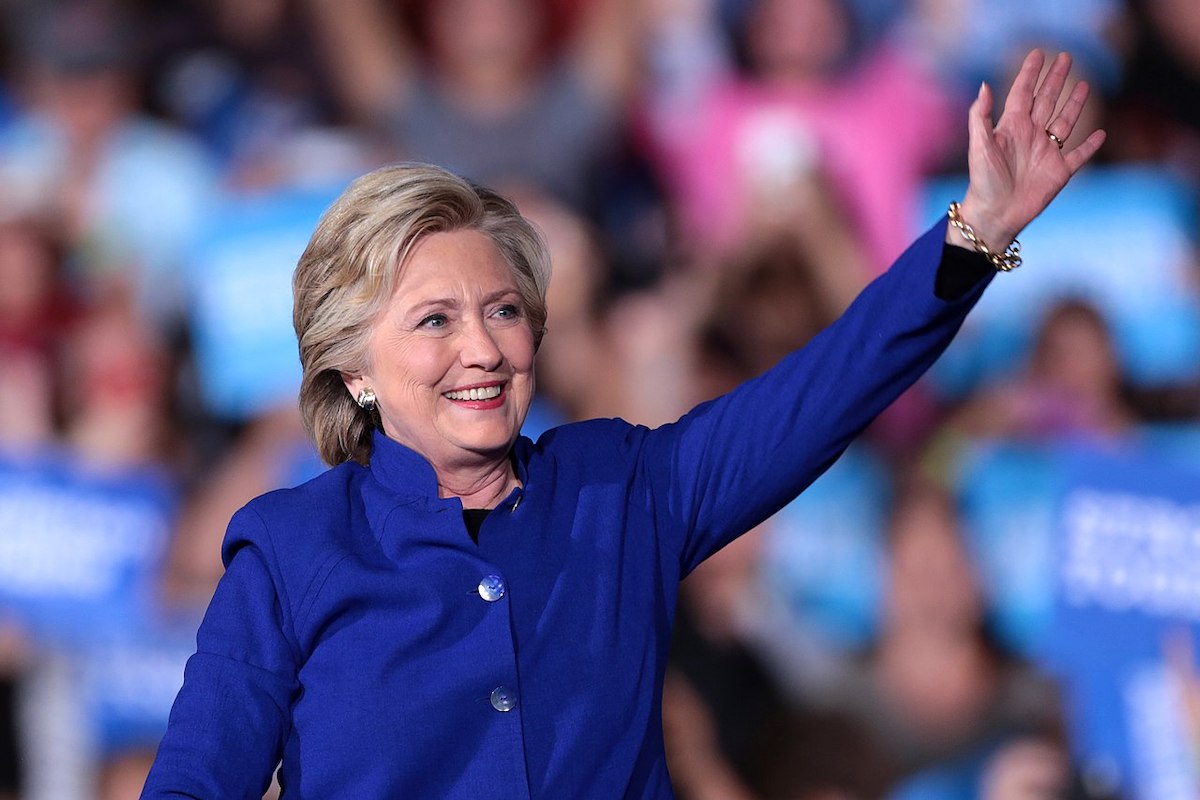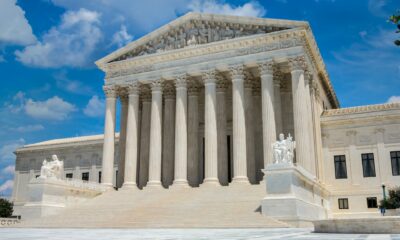Latest News
January 1, Probe Into Star Journalist’s Arrest by DOJ

Republican House Judiciary Chairman Jim Jordan has initiated an investigation into the arrest and treatment of investigative journalist Steve Baker by the U.S. Department of Justice (DOJ). Baker was arrested due to his coverage of the events that transpired on Jan. 6, 2021, at the U.S. Capitol.
Breanna Morello, an independent journalist, posted Jordan’s letter to Matthew Graves, U.S. attorney for the District of Columbia, dated March 12. The letter outlines “serious concerns” about the DOJ’s “selective prosecution” regarding Baker’s arrest in Dallas on March 1, as well as the Department’s commitment to the First Amendment rights of journalists.
“Other journalists who were in the Capitol on Jan. 6 haven’t been charged, yet the DOJ still decided to charge Baker, who was critical of federal investigations and prosecutions related to Jan. 6,” the letter states. Baker’s attorney is quoted as saying that the DOJ “is not allowed to decide what press coverage it likes and what press coverage offends it and take prosecutorial action based on those judgments.”
The letter also highlights that the DOJ appears to have “deviated from practice” by indicting Baker “when he voluntarily surrendered” and subjected him to formal arrest. This included fingerprinting, photographing, handcuffing, and placing Baker in the back of an FBI vehicle, transporting him to the courthouse, and presenting him before the magistrate judge in a ‘belly chain, box cuffs, and leg shackles.'”
Baker’s attorney, over a long career, had never seen the FBI treat others charged with misdemeanors in this way. The letter states, “This conduct smacks of harassment and selective treatment for a disfavored criminal defendant,” adding that it appears the DOJ has violated its “mission of equal justice under the law” and that its conduct “criminalizes politics and weaponizes the administration of justice.”
The letter criticizes the administration of President Joe Biden, noting concerns over its “commitment to equal application of the law.” Democrat U.S. Rep. Jerry Nadler (N.Y.), the committee’s ranking member, was copied on the letter.
In his letter, Jordan demanded that Graves produce the following no later than 5 p.m. March 26:
* All documents and communications regarding Baker’s arrest;
* All documents and communications regarding any investigation, prosecution, and arrest of any other journalist covering Jan. 6;
* All documents and communications related to the DOJ’s determination to request pretrial detention of defendants charged in connection with Jan. 6 — plus those who are now or who have been in pretrial detention related to Jan. 6.
Jordan’s letter concludes by reminding Graves that the Judiciary Committee has “jurisdiction to oversee” the DOJ regarding matters “related to civil liberties.”
The four nonviolent misdemeanor charges against Baker over his Jan. 6 reporting are: knowingly entering or remaining in any restricted building or grounds without lawful authority; disorderly and disruptive conduct in a restricted building or grounds; disorderly conduct in a capitol building; and parading, demonstrating, or picketing in a capitol building.
In the wake of Baker’s arrest, a video was released showing Baker’s movements in and around the U.S. Capitol that day, which appears to stand in stark contrast to the narrative the federal government is floating about him.
The 47-minute video includes Baker’s cellphone camera documentation of what went on inside the Capitol building alongside newly released footage from the Capitol’s CCTV cameras that was obtained primarily through the efforts of Republican U.S. Rep. Barry Loudermilk of Georgia. Loudermilk and Republican House Speaker Mike Johnson (La.) have made providing access to Jan. 6 videos a priority.
Here’s the unfiltered video showing Baker on Jan. 6 just before he entered the Capitol, his movements inside the building, and after he left. Content warning: Language:
With this new video as a backdrop, Baker and others blasted the FBI’s statement of facts behind his charges. Loudermilk himself sounded off with a Monday op-ed asking, “Where is the outrage over Steve Baker’s prosecution?”
What’s more, the criminal complaint against Baker and the government’s statement of facts are dated Feb. 21. Strangely, both documents were withheld from Baker and his legal team until after he turned himself in to the FBI on March 1. Why? Apparently because the powers that be were concerned Baker would reveal the charges against him on social media.
Baker’s attorney William L. Shipley — who penned an op-ed himself telling federal prosecutors “game on” — offered the following response to the criminal complaint against Baker and the FBI’s statement of facts.
“As I have seen in many other January 6 cases, the government has presented still images from longer videos and segments from longer written or audio recording of events that either lack context or are simply taken out of context. I know what some of the longer versions of this evidence actually shows, and those longer versions undermine the one-sided conclusions drawn by the special agent in the Affidavit. And that is all this document represents — the opinions of a single FBI agent who signed it,” Shipley stated.
He added, “In 32 years doing federal criminal trial work as both a prosecutor and a defense attorney, I’ve seen these kinds of conclusions turn out to be incorrect many many times. I expect that will be the outcome here.”
Kyle Seraphin — a former FBI special agent and U.S. Air Force veteran — wrote about Baker’s arrest in an op-ed, saying that it “disgraces the FBI.” But Seraphin last week also offered additional perspective regarding the government’s criminal complaint and statement of facts, noting that the content isn’t unlike other documents he’s seen, as it “starts with a significant ‘background’ section which covers events of the day that have nothing to do with any ‘allegation or information’ regarding a federal crime Steve Baker is alleged to have committed. In Steve’s case, there is also a significant amount of color commentary about his First Amendment-protected speech that did not happen during a time when he is alleged to have committed a crime.”
Seraphin also stated that “the statement of facts is so weak, Agent [Craig] Noyes and the magistrate judge who signed this complaint should be embarrassed they participated in this punishment theater of a journalist. The document itself is a microcosm of just how far the FBI has fallen from the once most respected law enforcement agency in America. They are now doing political hit jobs on perceived opponents of the Biden administration.”
While Baker said the FBI told him to show up at the Dallas field office on March 1 in “shorts and sandals” — which he said typically means authorities want to make it easier to prep an individual for a “humiliation” perp-walk routine — Baker, dignified as ever, arrived in a suit and tie.
Later he was placed in handcuffs, walked by a pair of agents to a vehicle, and transported to a courthouse.
Contributor Jill Savage noted later on March 1 that she exited the courtroom with Baker, who “was able to wear his dress clothes but had shackles on his wrists and ankles. He is expected to be released today. His next hearing is set in DC for March 14th.” Soon after, Baker was released.
Co-founder of the media company, Glenn Beck, wrote in a March 1 op-ed that Baker’s First Amendment battle is ours, too — and the day before he interviewed Baker and asked how he was holding up. Here’s how Baker responded:
Baker discussed his legal saga in a pair of October commentary pieces, detailing the ins and outs of the federal investigation he’s been under following his independent journalistic work on Jan. 6.
Baker’s first Jan. 6 analysis came last October following countless hours in a House subcommittee office looking at frame after frame of Jan. 6 closed-circuit video — and it had him wondering: Did Capitol Police Special Agent David Lazarus perjure himself in the Oath Keepers trial?
Soon after, the slow pace of getting an unrestricted look at everything recorded on video prompted the media company’s editor in chief’s appeal to House Speaker Mike Johnson to release all the videos. On Nov. 17, Johnson did just that.
Baker’s investigative efforts also resulted in two additional analyses, both focusing on Capitol Police Officer Harry Dunn: “January 6 and the N-word that wasn’t” and “Harry Dunn’s account of January 6 does not add up. At all.”
In December, Baker alleged that he uncovered major irregularities involving Dunn, the Capitol Police, the press, and U.S. Rep. Jamie Raskin (D-Maryland).
In January, Baker asserted that newly released U.S. Capitol closed-circuit TV video clips from Jan. 6 show Lazarus gave false testimony in the Oath Keepers trial.
Proof of Perjury | The Truth About January 6
Also in January, Baker and others were asking what the U.S. government has to hide in regard to the pipe bomb found on Jan. 6 at the Democratic National Committee headquarters. Baker in February wrote another analysis titled “Capitol Police diverted all CCTV cameras away from DNC pipe bomb investigation — except one.”
Baker penned his latest analysis on Feb. 21, asking why Kamala Harris was at the DNC and not the Capitol on Jan. 6.
As our loyal readers, we encourage you to share your thoughts and opinions on this issue. Let your voice be heard and join the discussion below.

-

 Entertainment4 months ago
Entertainment4 months ago‘He’s A Pr*ck And F*cking Hates Republicans’: Megyn Kelly Goes Off on Don Lemon
-

 Entertainment9 months ago
Entertainment9 months agoWhoopi Goldberg’s “Wildly Inappropriate” Commentary Forces “The View” into Unscheduled Commercial Break
-

 Entertainment8 months ago
Entertainment8 months agoLate Night Host is Getting Canceled After Staffers Speak Out
-

 Entertainment3 months ago
Entertainment3 months agoBeach Boys Founder Brian Wilson Announces Tragic News
-

 Featured8 months ago
Featured8 months agoUS Advises Citizens to Leave This Country ASAP
-

 Entertainment2 months ago
Entertainment2 months agoComedy Mourns Legend Richard Lewis: A Heartfelt Farewell
-

 Featured7 months ago
Featured7 months agoBenghazi Hero: Hillary Clinton is “One of the Most Disgusting Humans on Earth”
-

 Latest News2 months ago
Latest News2 months agoSupreme Court Gift: Trump’s Trial Delayed, Election Interference Allegations Linger
Richard
March 17, 2024 at 8:51 pm
I cannot wait until President Trump is elected. I just hope he turns the table on Garland and sends him Wray, Pelosi, and Schumer to a federal prison with gang activity. You would think their days are numbered.